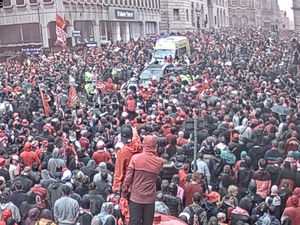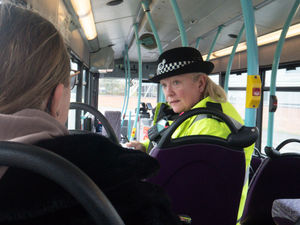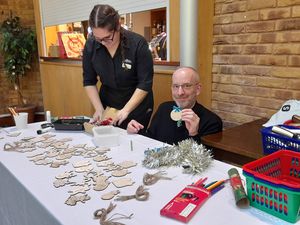In detail: Black Country pubs in crisis as supermarkets sweep in
2015 is not the easiest time to be running a pub - barely a week goes by without a new supermarket takeover attempt. Scroll through for in-depth, interactive coverage.
They were once at the centre of communities, providing vibrant meeting points for friends and families across the generations.
But in the coming years you will be more likely to buy your groceries from these sites than get a pint of lager – as they are slowly but surely being replaced by supermarkets and convenience stores.
Barely a week goes by without another chain looking to turn a pub – some of which are still open for business – into a shop.
And fears are being raised that within a few years there will be hardly any traditional pubs left.
Corporate raiders?
Campaigns have been launched throughout the Black Country and Staffordshire by residents who are determined to keep their local boozers.
In some cases they are actually coming out on top, as planning bosses sympathise with their argument that their communities' identities are being lost.
But many of these proposals are also being ushered through by councils who say it is better to keep have a viable business there than wait for someone brave enough to take on a pub in the current economic climate.
In the Dudley borough alone there have been at least seven examples this year of supermarket chains vying for community pubs.
Supermarket bosses are not always looking to demolish pubs – they also want to build stores on their car parks.
Care homes and housing developers are also snapping up key sites, often to the dismay of residents.
New River Retail bought a total of 202 pubs from Marston's in 2013 and recently a further 158 from Punch Taverns.
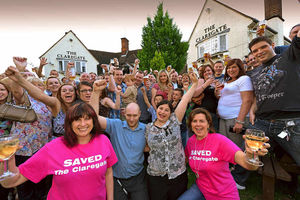
The company insists efforts are always made to keep a pub running as a viable business but says this is not always possible.
New River spokesman Martin Hughes said proposals have been drawn up for shops at about 60 of the pubs the firm has taken on, with the rest remaining untouched.
He said: "People have a perception of us as corporate raiders shutting everything down willy nilly, but that is never the intention.
"People often have emotional and historical connections with pubs, which we understand, but the problem is often finding people willing to run these pubs because they are bringing in insufficient income."
He said many of the pubs New River bought had tenants with six-month contracts, meaning there was no prospect of building a future for the sites.
Local assets
Until laws were recently introduced allowing pubs to get protection from developments by becoming an Asset of Community Value, in some cases companies did not even need to gain planning permission to transform a pub into a store.
Assets of Community Value were brought in by the Localism Act of 2011 and granting of the status effectively 'lists' the pub, bringing in a cooling off period to stops the closure or change of use.
This allows people from the local community the opportunity to buy an under-threat pub and run it themselves as a co-operative.
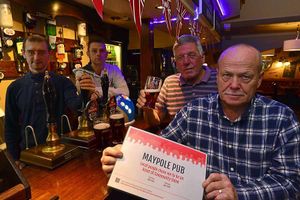
According to the Good Beer Guide 2016 there are now 35 pubs being run in this way – with 12 more in the pipeline.
Now new government legislation brought in this year means that where a pub is nominated or listed as an Asset of Community Value, a planning application will be required for its change of use or demolition – giving residents the opportunity to raise objections.
Locally The Pied Piper pub in Cannock, the Seven Stars in Sedgley, the Haden Cross Inn in Old Hill and six Stafford pubs, including the Rickerscote Arms and The West Way are among those listed as an Asset of Community Value.
The Campaign for Real Ale is one of the most vocal opponents to these developments across England and says national retail chains need to be reined in.
Neil Walker, Camra national spokesperson, said he was encouraging people to take steps to secure the future of their local pubs.
He said: "Pub-goers are seeing their well-run, valued community pubs being converted to supermarket convenience stores across the UK and as such Camra are encouraging people to list their local pub as an Asset of Community Value in order to safeguard it for the future."
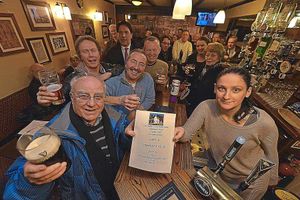
Pub politics
A parliamentary Save the Pub group has also been set up with the aim of changing the laws further to stave off these kinds of planning applications.
They argue that article 4 directions – which councils can, in theory, use to remove permitted development rights – are also ineffective as the process is complex, with legal pitfalls and a risk of compensation.
Greg Mulholland, chairman of the Save the Pub group, added: "If government is serious about localism and giving more power to communities, it must let them object when Tesco come in and want to turn their local pub into a supermarket.
"At the moment, Tesco doesn't need planning permission to do so – this is not right, nor is it genuine localism.
"Communities deserve a say in the future of their local people.
"The simple question is whether government and MPs support the right of communities to have a say, or whether they oppose it."
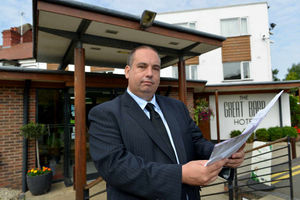
Experts say supermarket chains are targeting pubs as they cannot afford major out-of-town developments any more, but still want to be seen to be expanding.
Supermarket giant Tesco has been among the most high profile companies to face problems, with plans to take over the old Royal Hospital site in Wolverhampton being scrapped, and smaller stores including Bearwood High Street and Smethwick shutting down.
Professor Mike Haynes, a retail expert from the University of Wolverhampton, said supermarket bosses were sometimes guilty of making short-term decisions to boost shares and investment.
Professor Haynes said: "Sainsbury's has boosted its turnover recently by giving away money-off vouchers, so they are effectively handing you a few pounds worth of shopping for free when you spend a certain amount.
"This in turn will boost their shares when people look at the high turnover, but the actual profits will be suffering.
"It shows that chains are sometimes willing to do something that is not always to their advantage to keep them going in the short term.
"Similarly with the number of pubs being taken over – it is a relatively simple way for them to add another store to their portfolio without the cost of a big out-of-town development.
"I can see an end to this pattern but I don't think it will happen for a while."
The fight for convenience
The Express & Star reported earlier this year that supermarket chains are dominating town and city centres in the region, often dotted around ring roads, drawing shoppers away from town centre stores.
Professor Haynes believes shopping is moving into a different era now, with the rise of so-called discount brands like Aldi – so the industry's big-hitters are now scaling down their ambitions in order to compete.
He said: "Pubs are going bankrupt at quite an alarming rate – so there are plenty around ready to be taken over.
"From the supermarkets' point of view, they are in some difficulty at the moment and with big expansions off the agenda, they are instead looking at smaller convenience stores."
Professor Haynes added: "It helps that they don't have to go through the long planning rigmarole, and there is already a commercial use at these sites which gives them a starting point."
And he said the relentless dominance of recent years has left supermarkets with 'nowhere to go', and they face 'cannibalising' themselves by competing for their own customers.
He said: "Superstores make up 75 to 80 per cent of shopping, so now they are essentially fighting over the remaining 20 per cent with these convenience stores."
And though campaigners have proved they will fight to save their beloved pubs, Professor Haynes fears they will be no match for the supermarkets with their top legal teams.
"The local residents have got good sense on their side," he said.
"But supermarket money will often override good sense."


